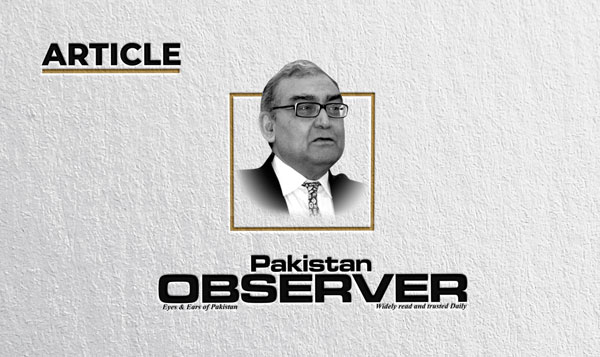Is Urdu a foreign language ?
SOME people in India say that Urdu is a foreign language. But is it? I submit that while Arabic and Persian are no doubt foreign languages, Urdu is a desi or indigenous language.
Let me explain. If we want to know to which language a sentence belongs, we should find out to which language do the verbs in that sentence belong.
It is the verb (called kriya in Hindi and feyl in Urdu ) which determines this, not the nouns, adjectives, or pronouns.
For example, suppose I say “Please aaiye with your wife for dinner to my house tomorrow evening at 8 p.m.“.
Now this sentence has 15 words, 14 of which are in English. But it is a Hindustani ( simple Hindi ) sentence, not an English sentence, because the verb ‘aaiye’ is a Hindustani word.
In Urdu, all verbs are invariably in Hindustani, not in Persian or Arabic, though many nouns are in Persian or Arabic.
We may take any sher ( couplet ) of any Urdu poet, and we will find that the verbs therein are always in Hindustani ( though the nouns and adjectives are often in Persian or Turkish ). Ghalib’s poetry is often highly Persianised, but the verbs there are always in Hindustani.
Consider this sher : “ Dekho mujhe jo deeda-e-ibarat nigaah ho Meri suno jo gosh-e-naseehat niyosh hai “Here the words ‘deeda’, ‘ibarat’, ‘nigaah’, ‘gosh’, ‘naseehat’, and ‘niyosh’ are all in Persian or Arabic.
But the verbs ‘dekho’, ‘suno’, and ‘hai’ are Hindustani words. So it is a Hindustani sher, not a Persian or Arabic one.
Similarly, consider this : “ Baazeecha-e-atfaal hai duniya mere aage Hota hai shab-o-roz tamaasha mere aage “Here the words ‘baazeecha’, ‘atfaal’, ‘shab’, ‘roz’ and ‘tamaasha’ are Persian or Arabic words.
But the verbs ‘hota’ and ‘hai’ are Hindustani words. So this sher too is a Hindustani, not a Persian or Arabic sher.
If the verbs in a sher are Persian or Arabic words, it would become a Persian or Arabic, not Hindustani, sher. No doubt Urdu is a special kind of Hindustani, not the Hindustani of the common man.
This is because it often uses, particularly in poetry, many Persian and Arabic words which the common man often finds difficult to understand.
Nevertheless it is a form or variation of Hindustani ( because its verbs are all in Hindustani ), not a form or variation of Persian or Arabic.
So Urdu is a special kind of Hindustani, not a special kind of Persian or Arabic. Hence Urdu is an indigenous, not a foreign, language
—The writer is former judge, Supreme Court of India.










